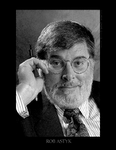In high school we’d had local radio stations in the
I was scheduled to work in the afternoons each weekday and on Sunday mornings. On the morning of June 5th my mother knocked on my bedroom door and announced that Robert Kennedy had been shot. It was hard to believe. After Martin Luther King, Jr. to have an assassination of another major American leader seemed impossible. That began a deathwatch that lasted until
I went to work and spent far more time than ever before running back and forth to the AP news printer. This murder did not affect me as deeply as had Dr. King’s. I think that I was a little numb after April 4th. And I was not as invested in Robert Kennedy as I had been in Dr. King.
I couldn’t support Hubert Humphrey despite his long and strong record of support for Liberal causes. He was, just as John McCain is today, tied, nay, shackled to the, wrong, insane, pointless Vietnam War. I did support Eugene McCarthy but had little hope that he’d be elected. Though I viewed Robert Kennedy as an opportunist and Johnny Come-Lately to the race, I was convinced that he was the one Democrat who could take the party nomination and rally the country to its better, more hopeful nature. The Kennedy name and power, the residual good will from his murdered brother could overcome the stark divisions in the country and lead
It was already clear that George Romney of
Had Robert Kennedy lived to contest the general election, we would have had a second Nixon versus Kennedy contest resulting in a Kennedy win, this time by a far wider margin. In that sense, Robert Kennedy had to be killed lest he keep the Republicans out of power for 16 straight years.
I am not a conspiracy theorist but I believe that the elections of Reagan, Poppy and Dubya Bush are the culmination of insidious action by the neo-fascist underbelly of
I kept running to the AP printer until the afternoon of
Each evening from December to December,
Before you slip to sleep upon your cot,
Think back on all the tales that you remember,
Of Camelot.
Ask each person if he’s heard the story,
And tell it loud and clear if he has not,
How once there was a fleeting wisp of glory,
Called Camelot.
…………………
Don’t let it be forgot,
That once there was a spot,
For one, brief, shining moment,
That was known as Camelot.
At the end of the cut the chorus swells for those last 2 lines. I took the turntable out of gear and let the record slow down trailing off to nothing.
The Kennedy loyalists tried feebly to rally his delegates behind George McGovern of
In August, I’ll write more about

No comments:
Post a Comment